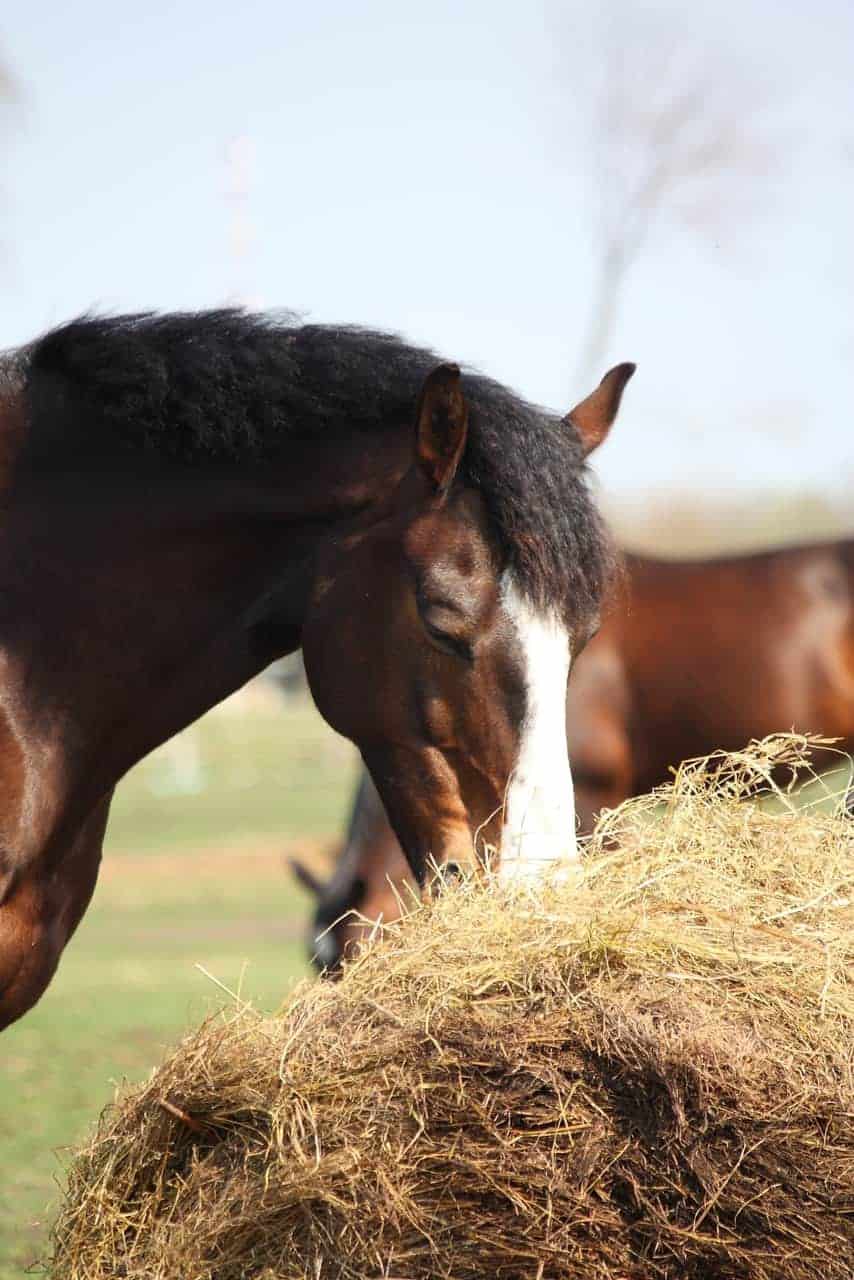Foreign Object Consumption
- Topics: Article, Digestive System, Hay, Horse Care, Nutrition

A: Although it is uncommon for a horse to ingest netting or string, if it happens it usually passes without complication.
I would still recommend watching your horse for any signs of illness, fever, abnormal behavior, or colic (abdominal discomfort or poor appetite can be colic signs). When animals (most commonly cats) ingest foreign bodies such as string, the main concern is whether the objects will become caught in their passage through the digestive tract and cause serious damage. Fortunately, this is unlikely in horses; the string would truly have to be exceptionally long to slowly bind and perforate the intestines, as occurs in smaller animals. I would suggest paying attention to his attitude and appetite, and if he starts running a fever call the veterinarian out to examine him.
More than likely you will see no complications, as I imagine far more horses do this than we realize. It is always a good idea to know your horses’ normal behavior and temperature, as changes in these parameters (see TheHorse.com/EquineHealthSigns) can often give us earlier indications of a problem than if we just wait until major problems present themselves
Create a free account with TheHorse.com to view this content.
TheHorse.com is home to thousands of free articles about horse health care. In order to access some of our exclusive free content, you must be signed into TheHorse.com.
Start your free account today!
Already have an account?
and continue reading.
Written by:
Kristen Slater, DVM
Related Articles
Stay on top of the most recent Horse Health news with















